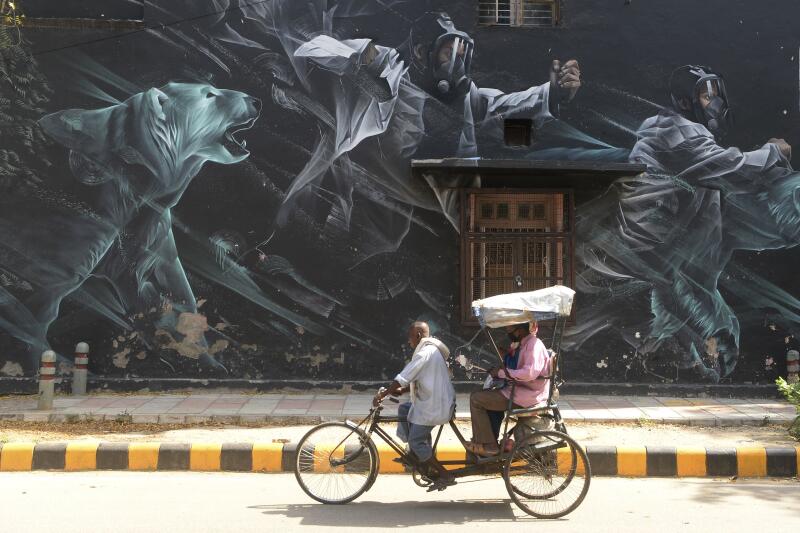India extends lockdown till May 3 as coronavirus cases surge past 10,000
Sign up now: Get insights on Asia's fast-moving developments

India intends to ramp testing up to 100,000 to prepare for the worst-case scenario.
PHOTO: AFP
NEW DELHI - Prime Minister Narendra Modi announced an extension to India's 21-day lockdown, scheduled to end on Tuesday (April 14), by almost three weeks to May 3 as the number of coronavirus cases in India crossed 10,000, with 339 deaths.
Mr Modi on Tuesday thanked citizens for staying at home in his third address to the nation on the coronavirus pandemic, but warned that restrictions had to continue, saying the "virus is spreading fast".
"India adopted a holistic and integrated approach. We have fared better when compared with other countries," he said.
"There has been huge economic costs but we have been able to save many lives. We are on the right path in this fight against the virus... We cannot let our guard lower now."
He added: "It is clearly evident from the experience of the past few days, that we have chosen the correct path... If we look at coronavirus-related figures in the world's big, powerful countries, India today is in a very well-managed position. From an economic only point of view, it undoubtedly looks costly right now, but measured against the lives of Indian citizens, there is no comparison."
He said that the government will make a call on whether economic activity can resume in parts of the country after April 20.
The government, he said, will issue detailed guidelines on Wednesday (April 15) on how this would take place.
"In places where the situation is improving, a few relaxations will be made. Permission will be withdrawn immediately if lockdown rules are broken and the spread of coronavirus is risked," Mr Modi said.
India implemented some of the most stringent measures to control the spread of Covid-19 early into the outbreak.
It started screening international arrivals around mid-January and from March 3 banned entry of foreigners from countries with high infection numbers like Italy. After grounding international and national flights, trains and public transport, Mr Modi announced a three-week lockdown till Tuesday (April) 14.
Addressing growing worries that the country's poor could be forced into greater poverty due to the complete cessation of all economic activity due to the lockdown, Mr Modi said that the government was looking at exemptions to help the poor, particularly migrant workers, and farmers.
Still, many believe India may not have the full ramifications of the virus in the absence of widespread testing, a key to gauging the spread of the highly contagious disease.
India is testing up to 18,000 samples a day and intends to ramp this up to 100,000 to prepare for the "worst-case scenario", according to the Indian Council of Medical Research.
"Whatever you do, 85 per cent will have some or no symptoms. If there is no good surveillance, most of them will be missed. 15 per cent will be severe," said virologist T. Jacob John, who earlier headed the Indian Council for Medical Research's Centre for Advanced Research in Virology.
He said that India had to brace itself for a peak, which experts believe will come between end April and early May.
"However, state governments are making their own preparations. Hopefully, those individual states will rise to the occasion. But yes ,we will have a peak. A peak can only be avoided if we have a three-month lockdown like Wuhan."


